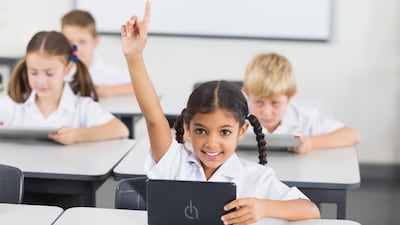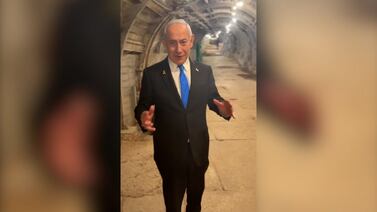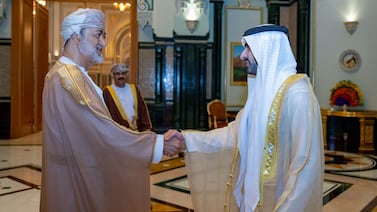Technology has become firmly established in society and is widely used in all sectors of the economy. This is especially true in education, where technological advancements provide children of all ages with resources that enable engaging and interactive learning experiences and help them stay connected. However, it is also the responsibility of users to strike a balance between mastering technology and avoiding dependency.
Alef Education has significantly improved learning outcomes and supported students worldwide using the right technology. In addition, the EdTech company emphasises student well-being by providing guardians with practical strategies to manage their children's screen time effectively, which is especially important since excessive screen time has several adverse effects on children’s development.
According to Norton’s My First Device Report, children use networked mobile devices, including smartphones and tablets, an average of two and a half hours a day. As children get older, this use increases, underscoring the need to manage screen time. Prolonged screen time can significantly affect children's cognitive, social and emotional development. Due to this, guardians actively seek ways to instil positive digital habits in their children, turning to techniques and tools to help them achieve this goal.
However, it is important to point out that screen time can benefit children. When used correctly, it promotes intellectual growth and creativity. Various educational websites and apps for children provide valuable learning experiences. At the same time, video conferencing and virtual classrooms have proven to be practical tools to foster peer collaboration and facilitate student-teacher interactions. Alef Education addresses this need by utilising cutting-edge innovations like artificial intelligence and machine learning to deliver high-quality, personalised learning experiences to every student.
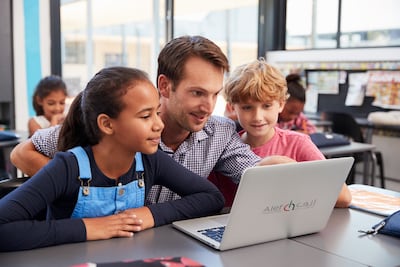
Geoffrey Alphonso, chief executive of Alef Education, said: “In today’s digital age, technology is a double-edged sword. This remarkable tool holds significant potential for enhancing learning experiences, but it can also be a source of distraction and dependency. At Alef Education, we believe it’s important to strike a balance between technology and healthy child development. Using the right technology, we empower students worldwide while emphasizing their holistic development. Our approach includes a product portfolio that provides student-centred, adaptive learning experiences that cultivate creativity and develop critical thinking. We believe that technology can be a force for good in the world, and we are committed to using it to help children reach their full potential.”
Alef Education promotes healthy digital practices and appropriate screen time for students as part of its commitment to fostering digital well-being. Its curated digital content helps students improve their imagination, problem-solving, and analytical skills while using technology as a catalyst. The company actively supports the UN Sustainable Development Goal 4, which ensures inclusive and equitable access to quality education for all members of the community. Through active participation in initiatives such as the Expo2020 Global Best Practice Programme, Alef Education has aligned with its mission to promote social development through education.
The Alef Guardian app is one such product that promotes balanced screen time and healthy child development by encouraging learning moments at home with parent-child activities. A study conducted by Alef Education's data and research team found that guardians who are more engaged in their child's learning positively impact their child's academic performance. Based on these findings, Alef Education is developing a new app feature: integrated parent-child activities to promote kinesthetic learning and increase the reach and impact of classroom instruction. These activities help cultivate positive habits by encouraging children to share their learning.
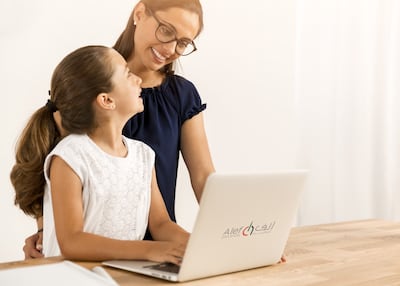
Dr Aishah Al Yammahi, the board advisor at Alef Education, emphasised balancing screen time with other important activities for a child’s holistic development: “We know how important it is to have real-world activities, face-to-face interactions, and offline learning experiences alongside technology that contribute to children’s overall well-being. Alef Education is dedicated to empowering families to find that balance between technology and child development. Alef Education remains committed to implementing effective policies that foster collaboration among students, teachers, and guardians while facilitating learning.”
Parents can take various steps to promote a healthy balance in the use of technology, such as setting clear limits, i.e., deciding when and how long their children can use technology. These limits should be communicated clearly and consistently. Encouraging active screen time is equally important, as it motivates children to engage in activities rather than passively consume media: adults at home can help children develop digital content, play interactive educational games, or explore creative applications.
Prioritising real-world activities is critical to a healthy balance of technology. The time a child spends in front of a screen must be balanced with other activities, such as outdoor activities, physical activities, social interactions, and other non-screen hobbies. Helping children discover and engage with high-quality, age-appropriate content is even more crucial. Parents can take the necessary precautions by helping their children explore reputable websites, educational apps, and platforms that offer insightful and culturally relevant content, thus using technology to enrich learning.
Alef Education aims to inspire young people to think critically, express themselves creatively, and realise their full potential in a rapidly evolving digital environment. This is made possible by its state-of-the-art digital learning solutions, designed to ensure digital well-being and be an essential part of a child’s daily routine to ensure holistic development in the digital age.
